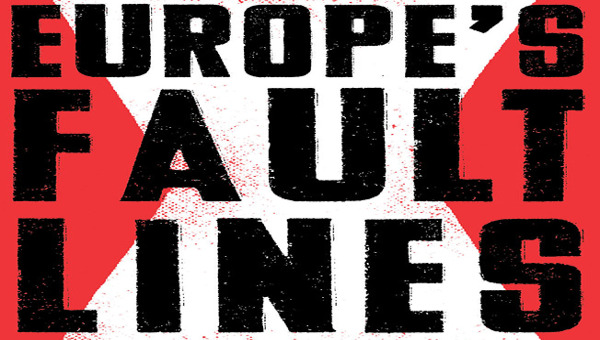Enabling Dictatorship and Destroying Democracy
In Timothy Ryback’s recently published book Takeover: Hitler’s Final Rise to Power, he explains how the establishment (the political and economic ruling elite) allowed Hitler and the Nazi Party to take power, laying the foundations of the Third Reich, with all its devastating consequences. The title of Adam Gopnik’s excellent review of Ryback’s book sums it up perfectly: “The Forgotten History of Hitler’s Establishment Enablers – The Nazi leader didn’t seize power; he was given it.” (The New Yorker, March 18, 2024). In the contemporary US context, parallels are drawn to the establishment’s enabling of Donald Trump. This should not be misunderstood as comparing Trump to Hitler. It is the way in which the establishment enables dictators that is key to our understanding of how it happened and why it is happening now.
Throughout history we have countless examples of the establishment enabling dictators and the horrific consequences. Of course, under colonialism the colonialists were the establishment, and they enabled brutal dictatorships that oversaw genocide on an unprecedented scale. In the Americas alone, from 1492 to 1600, more than 55 million indigenous people were systemically murdered by Europeans to clear them from their homelands. This 100-year genocide of indigenous people was on a scale so large it caused climate change – a drop in global temperatures.
It is this apocalyptic genocide of indigenous peoples under colonialism (and its continuation after independence) that renders many indigenous peoples “minorities” today. It’s mathematics. Murder enough of any people based on ethnicity or race, and they will become a minority: there will be fewer of them than the ethnicity or race of people who committed, allowed, or ignored this mass murder. The Uyghurs in Xinjiang in northwestern China, for example, are at present still an ethnic majority, but under the dictatorship of Xi Jinping, we are witnessing the Party-state turning them into a minority within the next decade, eradicating their ethnic and religious identity in the process. This is cultural genocide.

The Enablers
Under colonialism the “establishment enablers” included local political and economic elites who prospered through collaboration. They became part of the establishment. After colonialism – in newly independent nations – they became the establishment. This new national (and often nationalistic) establishment enabled new dictators, giving power to them, and denying people the sovereignty (self-determination) they had fought so hard for in their struggle for independence.
External and internal threats to the nation – real or perceived – always played a crucial role in the enabling of dictators and the establishment of authoritarian regimes. So important are these threats as a catalyst to dictatorship that they are often created or fabricated. Made to order. The need to defend the nation against external and internal enemies justified the suspension of rights and freedoms. Dictators (“strong men”) were then handed power to deal with whatever threat the nation faced. Elsewhere I have argued that in the near future, the military or far right could use severe climate events to invoke emergency powers and suspend democracy. (See “The climate crisis, emergencies, and the erosion of democracy” IUF Asia/Pacific May 23, 2023.)
One of the ways in which the establishment in newly independent nations enabled dictators and their authoritarian regimes was through the retention of colonial laws on subversion and disorder. Designed to quell the masses and protect the status quo under colonialism, these laws simply continued to be applied. In several countries, democratic leaders did not revoke these laws when they had the opportunity – and some made them even more repressive.

In Myanmar today, the military regime of General Min Aung Hlaing uses British colonial laws to arrest Civil Disobedience Movement (CDM) activists and trade unionists for causing social disorder or subversion. In the six years prior to the military coup in February 2021, Aung San Suu Kyi’s National League for Democracy (NLD) did not repeal these oppressive colonial laws, but rather enhanced them. Colonial laws on disorder and subversion, it seems, are the establishment’s insurance policy against the risk that the people might rise up and attempt to make democracy work. In fact, such laws are extremely useful when enforcing ethnicist and racist policies that determine who “the people” actually are. The tragic consequences of this for 900,000 persecuted and displaced Rohingya are clear.
Another aspect of the way in which dictatorship is enabled is through “power-sharing” with fascists, militarists, or the extreme right. The logic, it seems, is that by sharing power the fascists, militarists, or the extreme right will not take power. But this makes no sense at all. Power-sharing simply enables fascists, militarists, and the extreme right. They are ultimately given power, and with it comes a mandate from an elected government and/or mainstream political parties. This gives the emergent dictators something essential to retaining power: legitimacy.

Manufacturing Legitimacy
Maybe legitimacy is the key to understanding the role of establishment enablers. In the process of taking power, dictators have not yet established legal, institutional, and ideological control. Even if they are riding a wave of populist support, they are vulnerable to popular challenge. Their legitimacy at this juncture is drawn from the establishment that enables them. Later, when dictators turn against the establishment (as they always do), they are already capable of manufacturing legitimacy from within their authoritarian regime and no longer need their enablers.
Whether it is the madness of Milei’s free market revolution in Argentina, the one-party “selection” in Bangladesh, or the return of military rule in civilian clothes in Pakistan and Thailand, the devastating impact on democracy and democratic rights is clear. An entire generation may begin to wonder whether voting in elections has any meaning at all.
We are not yet halfway through the greatest year of elections in history. But we are already seeing the devastating consequences of the “establishment enablers” in countries like Bangladesh, Pakistan, and India. Several more countries will see the return of military-backed political parties, the rise of the extreme right, or a resurgent fascism. Collaboration, power-sharing, and compromise got us here. Maybe only the resumption of the fight for self-determination, the struggle to realize the sovereignty of the people (all the people) – and hope – can get us out. •





